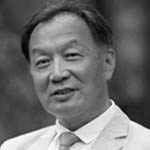-
23 Sep
#28 – reading list
September, 24 2013
China’s Dilemma: Marching West but Thinking East
Supplementary Materials
Related Posts
- 10000China’s Dilemma: Marching West but Thinking East September 24, 2013, Bridge Café (Wudaokou) Speaker: Prof. WANG Jisi, Professor, School of International Studies, Peking University Presentation In order to fully grasp the very essence of the so-called “China goes West” theory, Professor Wang Jisi emphasized the importance of understanding China’s global identity…
- 10000September, 24 2013 China’s Dilemma: Marching West but Thinking East Supplementary Materials March West: China’s Response to the U.S. Rebalancing http://www.brookings.edu/blogs/up-front/posts/2013/01/31-china-us-sun Addressing U.S.-China Strategic Distrust - Brookings Institution http://www.brookings.edu/~/media/research/files/papers/2012/3/30%20us%20china%20lieberthal/0330_china_lieberthal.pdf China’s search for a Grand Strategy (Foreign Affairs) http://www.foreignaffairs.com/articles/67470/wang-jisi/chinas-search-for-a-grand-strategy America in Asia: How much does China care? http://globalasia.org/pdf/issue3/v2n2jisi.pdf
- 10000event #28 September 24, 2013 Prof. WANG Jisi 王缉思 Professor, School of International Studies, Peking University Abstract Where do we trace back the origin of the “March West” theory? Does it have any precedent in the Chinese scholarship and to what extent it can be connected to the American Pivot…
Read more... -
13 Sep
#28 – China’s Dilemma: Marching West but Thinking East
event #28
September 24, 2013Prof. WANG Jisi 王缉思
Professor, School of International Studies, Peking UniversityRelated Posts
- 70
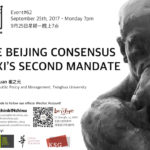 event #62 - Monday, September 25th, 2017 SPEAKER CUI Zhiyuan 崔之元, Professor, School of Public Policy and Management, Tsinghua University. ThinkINchina is back with the new Fall Season and honored to welcome professor Cui Zhiyuan, leading member of the Chinese New Left and the first person that introduced…
event #62 - Monday, September 25th, 2017 SPEAKER CUI Zhiyuan 崔之元, Professor, School of Public Policy and Management, Tsinghua University. ThinkINchina is back with the new Fall Season and honored to welcome professor Cui Zhiyuan, leading member of the Chinese New Left and the first person that introduced…
Read more... -
13 Jul
#27 event report: The Civil Factor: NGOs in China
The Civil Factor: NGOs in China
June 6, 2013, Bridge Café (Wudaokou)
Speaker: Prof. Dr. ZHANG Changdong 张长东, Assistant Professor, Department of Political Studies, Peking University
Presentation
Prof. Zhang opened the session by defining civil society as a precondition for effective democracy. The Chinese civil society encompasses a broad range of social organizations (shehui tuanti, 社会团体) which include non/enterprise units, foundations, village and residents- committees and international NGOs. According to Prof. Zhang, all these organizations, along with the so-called social movements (shehui yundong, 社会运动) and the old and new media, constitute a prerequisite for democracy. They operate on both the attitudinal level by creating a civil culture of trust, and on the behavioural level by producing civil engagement, constraining the power of the state, by representing the interests of their members and also by increasing the infrastructural power of the state through a mechanism of “mutual empowerment”.
According to Zhang, in China there is an undergoing “social organization revolution”, fuelled by a rapid increase of social organizations. Yet, the numbers are still significantly lower than in the rest of the world: if China counts 2,5 social organizations for every 10.000 people, Argentina reaches 25, the United States 52 and France 110.
Moving forward, Prof. Zhang presented the regulatory framework in which the Chinese civil society is developing arguing that, according to the Regulation on Registration and Administration of Social Organization (1989), it works on the basis of a dual management system. Under the current legal framework, the this system requires that most non-profit/social organizations not only register with the Ministry of Civil Affairs (MOCA), but also have to be affiliated with and supervised by a government agency in its functional area. In addition, MOCA allows these organizations to operate only in the local jurisdiction where it is registered and prohibits the establishment of other branches in different areas. Therefore, even when circumstances call for broader operations, it becomes impossible to extend the action of the organization beyond the narrow local jurisdiction. It is therefore clear why only a small minority of all social organizations seek formal registration with MOCA, with most founders not wishing, or simply not able, to get involved in protracted bureaucratic procedures with no guarantees of success. Recent estimates of the numbers of the unregistered social organizations range from 8 to 10 million, meaning that the roughly 460,000 registered social organizations represent only a small minority (less than 4-5%) of the non-profit sector.
During the 18th National Congress the Chinese Communist Party (CCP) approved the so-called “de-regulation of social organizations”, meaning social organizations can directly apply for official registration with MOCA without mandatorily seeking the prior approval or affiliation to a government or party body as the supervisory unit. The municipality of Shenzhen, the “city of philanthropy”, implemented this de-regulation already in July 1, 2012, and its non-profit organizations’ growth rate last year reached 15%, compared to the 4% average nation wide.
According to Prof. Zhang, this “social revolution” is the outcome of a dual dynamic of development: on one side the economic development and the marketization of the economy, while on the other the administrative reforms, especially the downsizing of government and the de-concentration of government power. Within this context the government has an “enabling role”, a “regulatory role” and at the same time a “predatory role”, which is hard to define through a single theoretical paradigm.
The current debate on the relationship between the social organizations and the government, and on the effectiveness of their policy advocacy activities revolves around the two theories of pluralism/civil society and corporatism. The western pluralist model relies on the assumption that the mission of the civil society organizations is to confront the government and protect society from the state’s intrusion and control so that the more resources a social organization has, the more influential it is in terms of policy advocacy. Prof. Zhang sees this approach as fundamentally inadequate to define the Chinese reality since it erroneously assumes a significant degree of openness of the policy making process and the identification of resources with effective power (the Chinese political system does not follow market rules). For these reasons he argues that the situation in China is best described by the state corporatist approach, in which the state chooses, recognizes and protects the authority of licensed associations representing sectorial interests and in return the associations become the mediator between the state and its constituents.Q&A
During the Q&A session the public has asked Prof. Zhang to go a bit further in the explanation of the relationship between the government and the no-profit organizations, especially in terms of the government’s receptiveness of ideas of policy change. In this sense he has argued that most NGOs are far away from having policy intentions since they tend to focus on the purpose of a public service. In addition, their main counterparts are the local authorities, which not only have limited resources, but also are the least receptive to ideas of policy change. Of course the corruption of local government officials often plays a decisive role in the life of a local NGO but it is nonetheless very unlikely that it will lead to significant impact on the government policies.
From the audience some doubts have been raised about the concept itself of NGO, literally intended as “NON-governmental” and its use in the chinese context, where, with probably the only exception of the Bill and Melinda Gates Foundation, we can only find government-led or government-controlled no-profit organisations. In this respect Prof. Zhang has underlined the fact that in the Chinese one-party system the Western-born term of NGO finds limited applicability and for this reason one should make the intellectual effort to contextualize it and understand the peculiar relationship that ties the Chinese civil society with the government (and therefor the Party).
(report by Chiara Radini)
Read more... -
29 May
-
22 May
#27 – The Civil Factor: NGOs in China
event #27
June 06, 2013Prof. Dr. ZHANG Changdong 张长东
Assistant Professor, Department of Political Studies, Peking University (more…)
Read more... -
21 May
#26 – reading list
event #26
May, 22 2013Back to Polygamy: Multilateralism in China-EU Relations
Supplementary Materials
Read more... -
13 May
#26 – Back to Polygamy: Multilateralism in China-EU Relations
event #26
May, 22 2013Prof. Dr. Zhou Hong 周弘
Director of the Institute of European Studies, Chinese Academy of Social Sciences
Read more... -
29 Apr
#25 – reading list
event #25
April, 30 2013Craving for Power: Energy and Security in China
Supplementary Materials
Read more... -
15 Apr
#25 – Craving for Power: Energy and Security in China
event #25
April, 30 2013Prof. Dr. Jørgen Delman
Department of Cross-Cultural and Regional Studies (TORS), Copenhagen UniversityDENG Liangchun 邓梁春
Senior Programme Officer, Climate and Energy Programme, WWF China
Read more... -
12 Apr
Robert Ross
Prof. Robert Ross, Professor of Political Science
Boston College and Associate, John King Fairbank Center for Chinese Studies, Harvard UniversityRobert S. Ross is Professor of Political Science at Boston College and Associate, John King Fairbank Center for East Asian Research, Harvard University. In 2014 he is Visiting Scholar at the Institute for Security Studies, Peking University. He has been a Fulbright Professor at the Chinese Foreign Affairs College and a Visiting Senior Fellow at the Institute of International Strategic Studies, Qinghua University. His recent publications include Chinese Security Policy: Structure, Power, and Politics (Routledge, 2009), China’s Ascent: Power, Security, and the Future of International Politics (Cornell University Press, 2008), and New Directions in the Study of Chinese Foreign Policy (Stanford University Press, 2006). He has testified before various Senate and House committees and the Defense Policy Board Advisory Committee. He is a member of the Academic Advisory Group, U.S.-China Working Group, United States Congress, and he is a consultant to U.S. government agencies. He is a member of the Council on Foreign Relations and the National Committee for U.S.-China Relations and he is a Senior Advisor of the Security Studies Program, Massachusetts Institute of Technology.
Read more... -
10 Apr
WANG Jisi
Prof. WANG Jisi 王缉思
Former Dean, Professor, School of International Studies, Peking University
Director, Center for International and Strategic Studies, Peking University
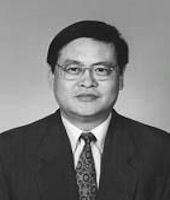 Professor WANG Jisi is the former dean of the School of International Studies, Peking University, and director of the Center for International and Strategic Studies, Peking University. He has been a member of the Foreign Policy Advisory Committee of the Foreign Ministry of China since October 2008, and is honorary president of the Chinese Association for American Studies. He is currently a Global Scholar at Princeton University (2011-2014).
Professor WANG Jisi is the former dean of the School of International Studies, Peking University, and director of the Center for International and Strategic Studies, Peking University. He has been a member of the Foreign Policy Advisory Committee of the Foreign Ministry of China since October 2008, and is honorary president of the Chinese Association for American Studies. He is currently a Global Scholar at Princeton University (2011-2014).
After working as a laborer in the Chinese countryside in 1968-78, Wang Jisi entered Peking University in 1978 and obtained an MA degree there in 1983. He taught in Peking University’s Department of International Politics (1983-91), and then served as director of the Institute of American Studies at the Chinese Academy of Social Sciences until kamagra oral jelly March 2005 when he assumed the current position at Peking University. He was concurrently director of the Institute of International Strategic Studies at the Central Party School of the Communist Party of China from 2001 to 2009.
Wang Jisi was a visiting fellow or visiting professor at Oxford University (1982-83), University of California at Berkeley (1984-85), University of Michigan at Ann Arbor (1990-91), and Claremont McKenna College in California (2001) .In February-March 2002, he taught and conducted research at the Singapore Institute of Defence and Strategic Studies as an S. Rajaratnam Professor. He advises a few U.S. foreign policy think tanks, and is on the editorial boards of The American Interest, Global Asia, and many Chinese scholarly journals.
Professor Wang’s scholarly interests cover U.S. foreign policy, Chinese foreign policy, and Asian security. He has published numerous works in these fields, including Guoji zhengzhi de lixing sikao (Rational Reflections on International Politics, 2006) and Sanshi nian shijie zhengzhi bianqian (World Politics inTransition: 1979-2009, co-editor, 2012). His article “China’s Search for Grand Strategy”was published in Foreign Affairs (March/April, 2011). He co-authored with Dr. Kenneth Lieberthal the study Addressing U.S.-China Strategic Distrust, published by the Brookings Institution in March 2012.Related Posts
- 89Prof. Dr. PAN Wei 潘维 Director, Center for Chinese & Global Affairs, School of International Studies, Peking University Prof. PAN is professor at the School of International Studies at Peking University and the Director of Center for Chinese & Global Affairs at SISS. He has a bachelor’s and master’s degrees in international…
- 87Prof. WANG Yizhou 王逸舟 Deputy Dean of the School of International Studies, Peking University Prof. WANG Yizhou 王逸舟, is Professor of international Politics and Chinese Foreign Affairs and Associate Dean in the School of International Studies (SIS), Peking University, since late 2009. He has been the Chief editor of the…
- 86Prof. Dr. WEN Tiejun 温铁军 Executive Dean, Institute of Advanced Studies for Sustainability, Renmin University of China Executive Dean, Institute of Rural Reconstruction of China, Southwestern University of China Tiejun WEN is a renowned expert on social-economic sustainable development and rural issues, especially in policy studies, macro-economic, geo-strategy of…
- 79
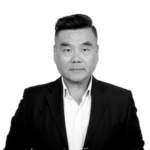 CUI Hongjian 崔洪建, Director, Department for European Studies, China Institute of International Studies Cui Hongjian holds a Ph.d in law from Peking University. He joined China Institute of International Studies in 1998 and has previously served as the director and first secretary of the Political Office. He is…
CUI Hongjian 崔洪建, Director, Department for European Studies, China Institute of International Studies Cui Hongjian holds a Ph.d in law from Peking University. He joined China Institute of International Studies in 1998 and has previously served as the director and first secretary of the Political Office. He is… - 76
 SHE Gangzheng 佘纲正, Assistant Professor, Department of International Relations, Tsinghua University Dr She Gangzheng is an Assistant Professor at the Department of International Relations at Tsinghua University in Beijing. He received a BA in Hebrew Language and Culture from Peking University and a Ph.D. in Near Eastern and…
SHE Gangzheng 佘纲正, Assistant Professor, Department of International Relations, Tsinghua University Dr She Gangzheng is an Assistant Professor at the Department of International Relations at Tsinghua University in Beijing. He received a BA in Hebrew Language and Culture from Peking University and a Ph.D. in Near Eastern and… - 76
 HUANG Yanzhong, Senior Fellow for Global Health, Council on Foreign Relations; Director of Global Health Studies, Seton Hall University's School of Diplomacy and International Relations. Huang Yanzhong is a senior fellow for global health at the Council on Foreign Relations, where he directs the Global Health Governance roundtable…
HUANG Yanzhong, Senior Fellow for Global Health, Council on Foreign Relations; Director of Global Health Studies, Seton Hall University's School of Diplomacy and International Relations. Huang Yanzhong is a senior fellow for global health at the Council on Foreign Relations, where he directs the Global Health Governance roundtable… - 75
 Plamen TONCHEV, Head of Asia Unit, Institute of International Economic Relations Plamen Tonchev is Head of Asia Unit at the Athens-based Institute of International Economic Relations (IIER) and currently a European China Policy Fellow at Merics, in Berlin. He is the founding member of the European Think-thank Network…
Plamen TONCHEV, Head of Asia Unit, Institute of International Economic Relations Plamen Tonchev is Head of Asia Unit at the Athens-based Institute of International Economic Relations (IIER) and currently a European China Policy Fellow at Merics, in Berlin. He is the founding member of the European Think-thank Network…
Read more... -
10 Apr
WANG Xun
Dr. WANG Xun
China Center for Contemporary World Studies, International Department
CPC Central Committee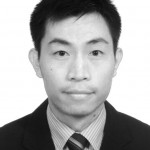 Mr. Xun WANG is now working as a research fellow at China Center for Contemporary World Studies (CCCWS). Prior to his service at CCCWS, he served as a Post doctoral research fellow of the Stockholm China Economic Research Institute at Stockholm School of Economics from September 1, 2011 to July 2013.
Mr. Xun WANG is now working as a research fellow at China Center for Contemporary World Studies (CCCWS). Prior to his service at CCCWS, he served as a Post doctoral research fellow of the Stockholm China Economic Research Institute at Stockholm School of Economics from September 1, 2011 to July 2013. Mr. Xun WANG’s current research focuses on macroeconomic policy, Chinese economy and international finance issues. He has published a number of journal articles about financial liberalization and development, including ‘Does Financial Repression Inhibit or Facilitate Economic Growth? A Case Study of China’s Reform Experience’ (Oxford Bulletin of Economics & Statistics), Financial Sector Policies and Inequality (China Economic Review), Financial Liberalizations and the Middle-income Trap: What can China Learn from the Cross-country Experience? (China Economic Review).
Mr. Xun WANG received a Ph.D in Economics from National School of Development, Peking University, an M.A in Economics from the Sun Yat-set University and a B.A in International Economics from Hebei University of Economics & Trade.
Read more... -
10 Apr
WANG Yizhou
Prof. WANG Yizhou 王逸舟
Deputy Dean of the School of International Studies, Peking University
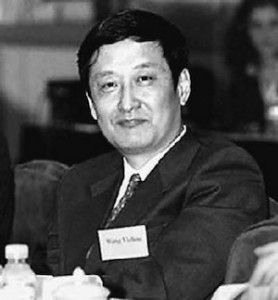 Prof. WANG Yizhou 王逸舟, is Professor of international Politics and Chinese Foreign Affairs and Associate Dean in the School of International Studies (SIS), Peking University, since late 2009. He has been the Chief editor of the magazine, World Economics and Politics (monthly), from 1998 to 2008 and the Deputy Director of the Institute of World Economics and Politics (IWEP) of the Chinese Academy of Social Sciences (CASS) at Beijing between 1998 and 2009. Prof. WANG obtained his bachelor degree at Hubei University, in the city of Wuhan, China (1978-1982) and he received his MA and Ph.D. Degrees from the Graduate School of CASS, Beijing, 1982-1988.
Prof. WANG Yizhou 王逸舟, is Professor of international Politics and Chinese Foreign Affairs and Associate Dean in the School of International Studies (SIS), Peking University, since late 2009. He has been the Chief editor of the magazine, World Economics and Politics (monthly), from 1998 to 2008 and the Deputy Director of the Institute of World Economics and Politics (IWEP) of the Chinese Academy of Social Sciences (CASS) at Beijing between 1998 and 2009. Prof. WANG obtained his bachelor degree at Hubei University, in the city of Wuhan, China (1978-1982) and he received his MA and Ph.D. Degrees from the Graduate School of CASS, Beijing, 1982-1988.His research interests include the role of China’s diplomacy in the development of global policy, comparative issues on Western and Chinese IR theories, trends of international institutions and laws. Among his publications: IR studies in the West: History and Theories (1998), Construction within Contradiction: Multiple perspectives on the relationship between China and International Organizations (2003), New Thinking of China’s Diplomacy (2007), Creative Involvement: New direction of China Diplomacy (2011) and Creative Involvement: Evolution of China’s Global Role (2013).
Related Posts
- 87Prof. WANG Jisi 王缉思 Former Dean, Professor, School of International Studies, Peking University Director, Center for International and Strategic Studies, Peking University Professor WANG Jisi is the former dean of the School of International Studies, Peking University, and director of the Center for International and Strategic Studies, Peking University. He has…
- 86Prof. Dr. PAN Wei 潘维 Director, Center for Chinese & Global Affairs, School of International Studies, Peking University Prof. PAN is professor at the School of International Studies at Peking University and the Director of Center for Chinese & Global Affairs at SISS. He has a bachelor’s and master’s degrees in international…
- 80Prof. Dr. WEN Tiejun 温铁军 Executive Dean, Institute of Advanced Studies for Sustainability, Renmin University of China Executive Dean, Institute of Rural Reconstruction of China, Southwestern University of China Tiejun WEN is a renowned expert on social-economic sustainable development and rural issues, especially in policy studies, macro-economic, geo-strategy of…
- 74
 CUI Hongjian 崔洪建, Director, Department for European Studies, China Institute of International Studies Cui Hongjian holds a Ph.d in law from Peking University. He joined China Institute of International Studies in 1998 and has previously served as the director and first secretary of the Political Office. He is…
CUI Hongjian 崔洪建, Director, Department for European Studies, China Institute of International Studies Cui Hongjian holds a Ph.d in law from Peking University. He joined China Institute of International Studies in 1998 and has previously served as the director and first secretary of the Political Office. He is… - 72
 HUANG Yanzhong, Senior Fellow for Global Health, Council on Foreign Relations; Director of Global Health Studies, Seton Hall University's School of Diplomacy and International Relations. Huang Yanzhong is a senior fellow for global health at the Council on Foreign Relations, where he directs the Global Health Governance roundtable…
HUANG Yanzhong, Senior Fellow for Global Health, Council on Foreign Relations; Director of Global Health Studies, Seton Hall University's School of Diplomacy and International Relations. Huang Yanzhong is a senior fellow for global health at the Council on Foreign Relations, where he directs the Global Health Governance roundtable… - 71
 Plamen TONCHEV, Head of Asia Unit, Institute of International Economic Relations Plamen Tonchev is Head of Asia Unit at the Athens-based Institute of International Economic Relations (IIER) and currently a European China Policy Fellow at Merics, in Berlin. He is the founding member of the European Think-thank Network…
Plamen TONCHEV, Head of Asia Unit, Institute of International Economic Relations Plamen Tonchev is Head of Asia Unit at the Athens-based Institute of International Economic Relations (IIER) and currently a European China Policy Fellow at Merics, in Berlin. He is the founding member of the European Think-thank Network… - 71
 SHE Gangzheng 佘纲正, Assistant Professor, Department of International Relations, Tsinghua University Dr She Gangzheng is an Assistant Professor at the Department of International Relations at Tsinghua University in Beijing. He received a BA in Hebrew Language and Culture from Peking University and a Ph.D. in Near Eastern and…
SHE Gangzheng 佘纲正, Assistant Professor, Department of International Relations, Tsinghua University Dr She Gangzheng is an Assistant Professor at the Department of International Relations at Tsinghua University in Beijing. He received a BA in Hebrew Language and Culture from Peking University and a Ph.D. in Near Eastern and…
Read more... -
09 Apr
WEN Tiejun
Prof. Dr. WEN Tiejun 温铁军
Executive Dean, Institute of Advanced Studies for Sustainability, Renmin University of China
Executive Dean, Institute of Rural Reconstruction of China, Southwestern University of China
Tiejun WEN is a renowned expert on social-economic sustainable development and rural issues, especially in policy studies, macro-economic, geo-strategy of south-south cooperatives, and long-term inclusive growth.
Wen, who also is executive dean of China’s Institute of Rural Reconstruction of China, Southwest University, focuses particularly on policy studies, macro-economic, geo-strategy of south-south cooperatives, and long-term inclusive growth.
He is member of State Consultant Committee of Environment Protection, and is vice chairperson of the China Society of Agricultural Economics. Wen has received numerous honors and awards, including the First Rank Award for Science and Technology Progress from the Chinese Ministry of Agriculture and the First Rank Award for Teaching and Education cialis kopen from the Beijing Municipal Government.
Wen Tiejun is author of the influential best-selling work on the agrarian crisis in China. As Executive Secretary General of the Chinese Society for Restructuring the Economic System, he is leading China’s grassroots efforts to revive rural communities and economies. As agricultural economist Wen Tiejun won his fame last year not as a theory maker, but as the creator of China’s first free farmer’s training centre – the Yanyangchu Countryside Construction Institute in Hebei Province.
In 2004, China Business Weekly named Wen one of the top ten “movers and shakers in China’s economy.”Related Posts
- 86Prof. WANG Jisi 王缉思 Former Dean, Professor, School of International Studies, Peking University Director, Center for International and Strategic Studies, Peking University Professor WANG Jisi is the former dean of the School of International Studies, Peking University, and director of the Center for International and Strategic Studies, Peking University. He has…
- 84Prof. Dr. PAN Wei 潘维 Director, Center for Chinese & Global Affairs, School of International Studies, Peking University Prof. PAN is professor at the School of International Studies at Peking University and the Director of Center for Chinese & Global Affairs at SISS. He has a bachelor’s and master’s degrees in international…
- 80Prof. WANG Yizhou 王逸舟 Deputy Dean of the School of International Studies, Peking University Prof. WANG Yizhou 王逸舟, is Professor of international Politics and Chinese Foreign Affairs and Associate Dean in the School of International Studies (SIS), Peking University, since late 2009. He has been the Chief editor of the…
- 78
 CUI Hongjian 崔洪建, Director, Department for European Studies, China Institute of International Studies Cui Hongjian holds a Ph.d in law from Peking University. He joined China Institute of International Studies in 1998 and has previously served as the director and first secretary of the Political Office. He is…
CUI Hongjian 崔洪建, Director, Department for European Studies, China Institute of International Studies Cui Hongjian holds a Ph.d in law from Peking University. He joined China Institute of International Studies in 1998 and has previously served as the director and first secretary of the Political Office. He is… - 75
 Plamen TONCHEV, Head of Asia Unit, Institute of International Economic Relations Plamen Tonchev is Head of Asia Unit at the Athens-based Institute of International Economic Relations (IIER) and currently a European China Policy Fellow at Merics, in Berlin. He is the founding member of the European Think-thank Network…
Plamen TONCHEV, Head of Asia Unit, Institute of International Economic Relations Plamen Tonchev is Head of Asia Unit at the Athens-based Institute of International Economic Relations (IIER) and currently a European China Policy Fellow at Merics, in Berlin. He is the founding member of the European Think-thank Network… - 74
 SHE Gangzheng 佘纲正, Assistant Professor, Department of International Relations, Tsinghua University Dr She Gangzheng is an Assistant Professor at the Department of International Relations at Tsinghua University in Beijing. He received a BA in Hebrew Language and Culture from Peking University and a Ph.D. in Near Eastern and…
SHE Gangzheng 佘纲正, Assistant Professor, Department of International Relations, Tsinghua University Dr She Gangzheng is an Assistant Professor at the Department of International Relations at Tsinghua University in Beijing. He received a BA in Hebrew Language and Culture from Peking University and a Ph.D. in Near Eastern and… - 73
 HUANG Yanzhong, Senior Fellow for Global Health, Council on Foreign Relations; Director of Global Health Studies, Seton Hall University's School of Diplomacy and International Relations. Huang Yanzhong is a senior fellow for global health at the Council on Foreign Relations, where he directs the Global Health Governance roundtable…
HUANG Yanzhong, Senior Fellow for Global Health, Council on Foreign Relations; Director of Global Health Studies, Seton Hall University's School of Diplomacy and International Relations. Huang Yanzhong is a senior fellow for global health at the Council on Foreign Relations, where he directs the Global Health Governance roundtable…
Read more... -
08 Apr
XU Xing
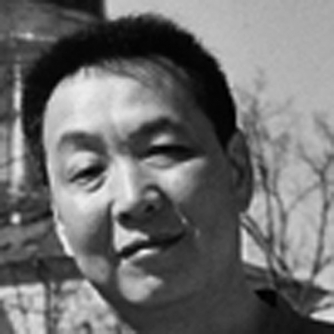
XU Xing 徐星 (b. 1956 in Beijing) is a writer, documentary film maker and public intellectual currently residing in Beijing. As a writer he became iconic in the 1980s with his work Variations Without a Theme (无主题变奏), that defined the mood of the Chinese youth of that period. During the Cultural Revolution Xu was left by himself as a child – his parents had been sent far away for re-education – and travelled and wandered in many distant places of China. Xu emigrated for Germany in 1989, and didn’t return for four years.
He revisited his experiences as a rebellious youth in the early 70s in one of his recent documentaries. In his novels and documentaries he employs fiercy irony and consistently focusses on people on the fringe of society left behind by rapid development in China.
His work has been translated into French, German, English and Italian.
Novels:
XU Xing (2004): Shengxia Dou Shuyu Ni (剩下都属于你),
lit. “You Can Have Whatever’s Left”, currently untranslated—— (1985): Wu Zhuti Bianzou (无主题变奏 ),
Translation: Xu, Xing (1997). Variations Without a Theme’ and Other Stories. Trans. Maria Galikowski and Lin Min. Sydney: Wild Peony.—— (1992). Le Crabe à lunettes. Trans. Sylvie Gentil. Paris: Éditions Julliard.
Documentaries:
2007: Wo de Wenge Biannianshi (我的文革编年史) A Chronicle of My Cultural Revolution
2013: 5+5 (Wu Jia Wu), with Andrea Cavazzuti
Read more...


